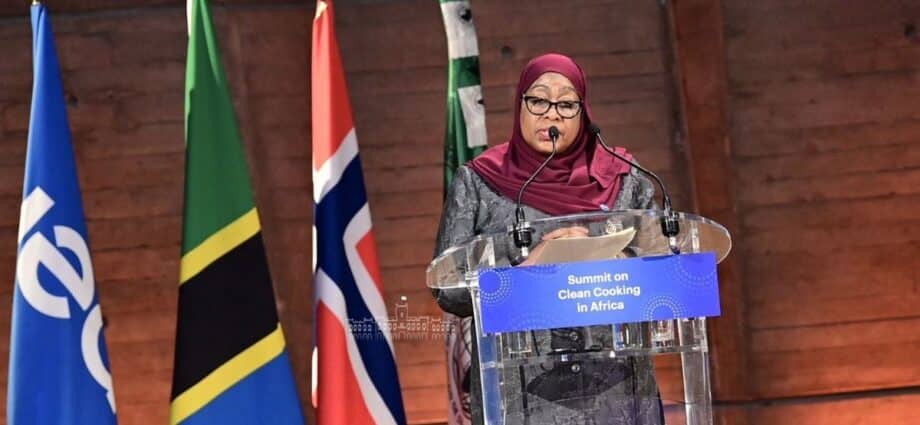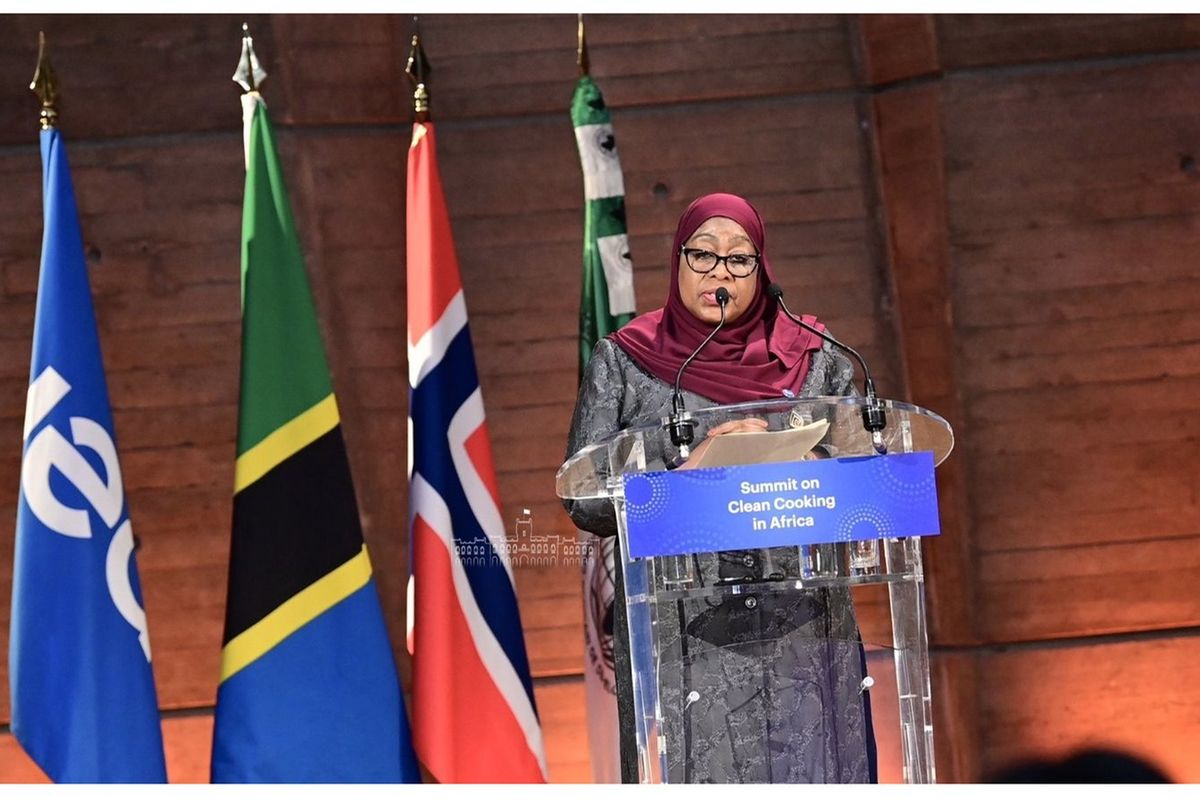By Imanuel Muro
History will highlight 2024 as a pivotal year in the transition to clean cooking solutions. In Tanzania, the ten-year national clean cooking strategy was launched, setting the bold ambition to achieve 80 percent household adoption by 2034.
At the Paris Clean Cooking Conference in May, emphasis was placed on the policy frameworks, technological innovations, financing mechanisms and partnerships to promote clean cooking.
As co-chair of the summit, Her Excellency Samia Suluhu Hassan, President of the United Republic of Tanzania, affirmed that, “We are integrating clean cooking targets into our national energy policies to ensure a coordinated and effective approach. This includes providing incentives for the adoption of clean cooking technologies.”
The commitment by President Hassan to alleviate the burden on women, promote environmental conservation and realise economic benefits of the transition is a positive step in the journey towards household adoption. In this article, we explore insights from the conference on the cost of the transition and technologies that will advance clean cooking in Tanzania.
The National Clean Cooking Energy Strategy estimates that it will cost around $1.8 billion (Sh4.6 trillion) to support the transition from the current ten percent to 80 percent of the population and households using clean cooking energy by 2034.
However, despite significant commitments, such as the World Bank’s Clean Cooking Fund and various pledges made at the Paris Clean Cooking Conference, the funding gap remains vast.
Tanzania’s geographical size (945,000 square kilometres) and its spread-out population translate into huge demand for supply chains, investment in monetary capital and technological deployment, especially digital innovation. Thankfully, however, the policy and regulatory environments are gradually being directed at addressing various barriers, especially with regard to capital and investment.
An impressive $2.2 billion was pledged at the summit by various governments, development partners, international agencies and private sector entities to advance clean cooking solutions across Africa.
Additionally, the African Development Bank made a significant pledge of $2 billion over the next decade. The conference highlighted various financing mechanisms to support clean cooking initiatives, including grants, loans and blended finance models.
Tanzania is actively engaged in several initiatives aimed at transitioning to clean cooking solutions. These initiatives are supported by government policies, international partnerships and local organisations.
A good example is the EU-funded CookFund programme being implemented by UNCDF in five Tanzania mainland regions of Dar es Salaam, Coast, Morogoro, Dodoma and Mwanza. The programme focuses on stimulating consumption from the lower end of the demand value chain.
Specifically, it works directly with the private sector to address the challenges of undercapitalisation, availability and end-user affordability.
This five-region pilot programme has stimulated latent demand within the project area and beyond, which means that more support is required from both the public sector and development partners to enhance private sector participation and change end-user mindsets.
While the global pledges signal a strong commitment to advancing clean cooking, the specific allocation to Tanzania remains less defined. The demonstrated commitment to mitigating climate change and improving health outcomes for women and children is key to attracting more funding for clean cooking.
While appreciating the Paris summit, commitment and national strategy, it is worth noting that there are always the costs of change which are far beyond the quantitative parameters.
While the quantitative can be monetised and measured, the qualitative, including cultural attributes, mindsets and beliefs, require different approaches to achieve the desired and sustained impact. Unless the qualitative component is well designed, tweaked and correctly delivered, the ultimate yield will end up being minimal.
To achieve transformative change, the rollout of appropriate solutions should consider diversity in cultures, free will of the user, family size, type and size of meals, availability of alternative fuel, etc. Of equal importance is the need for an appropriate energy mix that leverages the country’s available resources.
“Tone at the Top” is a unique push towards our national objective and priorities. President Hassan’s advocacy and commitment have set a strong foundation for future efforts.
The stage is set for a coordinated effort by relevant stakeholders to lead the change. By adopting policy measures, embracing technological innovations and securing funding, Tanzania can make substantial progress towards universal access to clean cooking.
Stakeholders across the board must act decisively to turn these insights into reality and improve the health, environment and economic well-being of Tanzanian communities.
Imanuel Muro is CookFund Programme Manager and UNCDF Senior Finance Specialist















